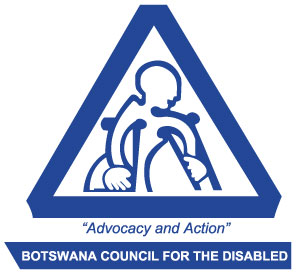1. VISION IMPAIRMENT

Vision impairment refers to people who are blind or who have partial vision.
When talking with a person who is blind or has a vision impairment:
always identify yourself and any others with you
ask if the person requires assistance, and listen for specific instructions, however be prepared for your offer to be refused.
2. PEOPLE WITH INTELLECTUAL DISABILITY

A person with an intellectual disability may have significant limitations in the skills needed to live and work in the community, including difficulties with communication, self-care, social skills, safety and self-direction.
The most important thing to remember is to treat each person as an individual:
a person with an intellectual disability is just like everyone else – treat them as you would like to be treated
be considerate of the extra time it might take for a person with an intellectual disability to do or say something
be patient and give your undivided attention, especially with someone who speaks slowly or with great effort.
3. PEOPLE WITH PHYSICAL DISABILITY

The common characteristic in physical disability is that some aspect of a person’s physical functioning, usually either their mobility, dexterity, or stamina, is affected. People with physical disability are usually experts in their own needs, and will understand the impact of their disability.
There are many different kinds of disability and a wide variety of situations people experience. The disability may be permanent or temporary. It may exist from birth or be acquired later in life. People with the same disability are as likely as anyone else to have different abilities.
4. PEOPLE WITH AUTISM SPECTRUM DISORDER

Autism is an umbrella description which includes Autistic disorder, Asperger’s syndrome and atypical autism. Autism affects the way information is taken in and stored in the brain. People with autism typically have difficulties in verbal and non-verbal communication, social interactions and other activities. Impairments usually exist across three main areas of functioning:
social interaction
communication, and
behaviour (restricted interests and repetitive behaviours).
5. PEOPLE WITH ACQUIRED BRAIN INJURY (ABI)

Acquired brain injury (ABI) refers to any type of brain damage that occurs after birth. The injury may occur because of infection, disease, lack of oxygen or a trauma to the head. Around 160,000 Australians have some form of acquired brain injury, with more men affected than women.
The long term effects are different for each person and can range from mild to profound. It is common for many people with ABI to experience:
increased fatigue (mental and physical)
some slowing down in the speed with which they process information, plan and solve problems
changes to their behaviour and personality, physical and sensory abilities, or thinking and learning
may also have difficulty in areas such as memory, concentration and communication.
A person with an Acquired Brain Injury does not have an intellectual disability and does not have a mental illness.
6. PEOPLE WHO ARE DEAF OR HARD OF HEARING

Hearing impairments can range from mild to profound. People who are hard of hearing may use a range of strategies and equipment including speech, lip-reading, writing notes, hearing aids or sign language interpreters.
When talking to a person who is deaf or hard of hearing:
look and speak directly to them, not just to the people accompanying them, including interpreters
speak clearly and use a normal tone of voice unless otherwise instructed by the person with the hearing impairment
if you don’t understand what a person is saying, ask them to repeat or rephrase, or alternatively offer them a pen and paper
7. PEOPLE WITH MENTAL HEALTH CONDITIONS

Mental illness is a general term for a group of illnesses that affect the mind or brain. These illnesses, which include bipolar disorder, depression, schizophrenia, anxiety and personality disorders, affect the way a person thinks, feels and acts.
A person with a mental health condition may experience difficulty concentrating, which can sometimes be a result of medication. Try to avoid overly stressful situations wherever possible so that their condition is not exacerbated.
